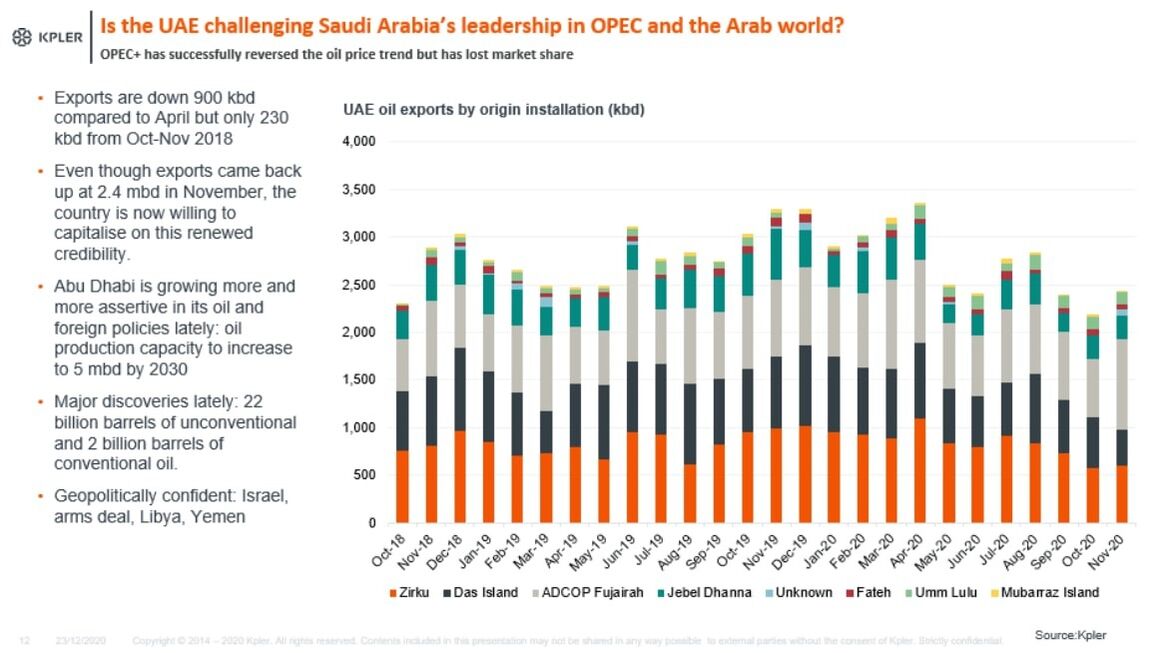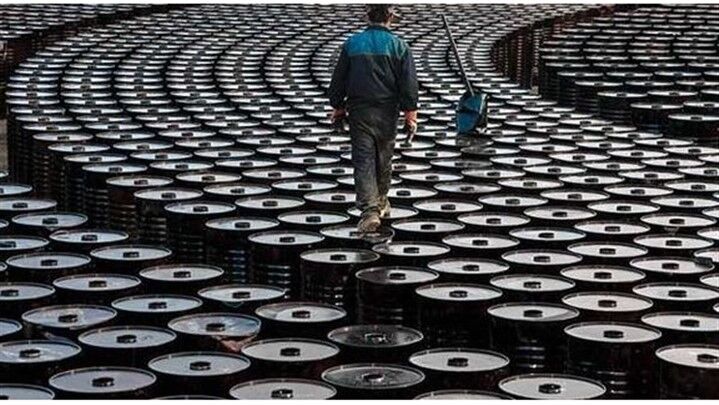Homayoun Falakshahi, a senior oil analyst at market intelligence firm Kpler, maintains that as oil production costs of OPEC and Persian Gulf states are lower than non-OPEC states like Brazil and the United States, OPEC MCs would be the last remaining states to be producing oil.
“I believe that by the end of the age of oil, OPEC member states would be the only nations to be still producing oil,” he said.
OPEC Dilemma
Shale oil is the undisputed rival to OPEC producers and their allies. Some analysts still hope that shale oil production would become uneconomical as oil prices keep falling so that oil producers would feel relaxed. But taking into consideration the accelerated technological growth in the shale oil production and the general tendency on the part of various nations to use renewable energies, how could we express hope that shale would be gradually eliminated from the oil market under the conditions.
The fact is that over the past one decade, OPEC has sought to prevent shale oil production from becoming economical. Even cooperation between OPEC and Russia-led non-OPEC was a step in that direction. At the beginning, it seemed that OPEC and non-OPEC were unlikely to reach agreement on cutting output to prevent shale oil production. However, they reached a landmark deal on production cut in 2017. Amid a tough price war between Saudi Arabia and Russia, the deal was destabilized in March 2020. Speculation was rife that the agreement would fail. However, the covid-19 pandemic changed the game. In April 2020, OPEC and their allies reached agreement to keep cutting production up to 2020 in a bid to reverse the downward trend in oil prices.
Falakshahi said: “Even now some OPEC members are facing certain revenue problems and therefore budget deficit as their production has declined.”
He also touched on dilemma OPEC is faced with on either increasing or decreasing its output.
“If oil prices hike, oil production will become uneconomical for non-OPEC. Meantime, since OPEC and allies are faced with production restrictions, non-OPEC producers will make maximum investment and capacity building for increasing production and subsequently their revenue,” he said.
Falakshahi said: “The coronavirus crisis in 2020 caused a sharp decline in world oil prices. Saudi Arabia saw its March-April revenue drop $50 billion, which constituted 10% of the country’s total hard currency reserves. Therefore, they were forced to cut their production in order to boost prices.”
Political Pressure and Shale Output
What should be done then to make shale oil production uneconomical? Falakshahi said: “Oil prices should remain low over a period of 4-6 months for shale oil production to become uneconomical for US oil companies.”
He added that although OPEC and non-OPEC allies made gains from the April 2020 agreement, the biggest winner of the OPEC+ agreement was US shale whose production became economical to save the US economy thanks to political pressure exerted by the Trump administration on Saudi Arabia. In other words, OPEC is the loser; if prices drop they will be faced with budget deficit and if prices grow shale oil will become economical.
What is the best policy OPEC and allies may adopt at a time they have emerged as loser?
“There is nothing specific OPEC can do. It has to bring stability to the market in the long-term for prices to reach a level that outside OPEC there would be no huge investment,” said Falakshahi.
In case oil prices exceed $50 a barrel, shale oil production will become economical. However, if oil prices remain within the range of $40 investment in shale production would have no economic justification. That is why many analysts recommend OPEC to have a price band of $40-$50 a barrel.
UAE, Main Violator of OPEC+ Deal
Due to their budget dependence on oil revenue, some OPEC member states have supplied more than quotas set for them. In the closing statement of the 12th meeting of OPEC+ it was noted that 12 out of 20 states involved in the April 2020 agreement would have to cut totally 2.346 mb/d from their oil output to compensate for their overproduction until the end of March 2021.
All eyes have turned to Iraq and Russia for quota violations. From May to October, Iraq supplied 610,000 b/d more than its quota while Russia’s overproduction reached 531,000 b/d.
“More than anything else, we need to look at oil trading rather than domestic production capacity,” said Falakshahi.
Iraq’s overproduction is virtually overshadowed by the decline in its exports over recent months. All oil producers are apparently trying to honor the agreement. Although Iraqi oil production is under control of Western companies that seek their own profits, it would be a tough task to convince them.
However, Falakshahi said the United Arab Emirates was the main violator of the OPEC+ agreement without having been highlighted by media.
“Compared with October and November 2018 when the basis for calculations was the OPEC+ output cut, we see that Abu Dhabi has not honored its commitments to cut its output,” he said.
“If we take a look at the average exports in October and November 2018 we see that the UAE saw its October 2020 exports decline. The UAE seized this opportunity to claim in the November meeting that it had remained committed to the OPEC+ agreement without having committed any violations. That is while Abu Dhabi’s November exports rate grew in November.

He said that the UAE exported 2.8 mb/d of oil in August, thereby not being fully compliant with its commitments to cut output.
“Coincidentally, Abu Dhabi has supplied more than envisaged, showing its firm determination to highlight its clout with OPEC and influence in the region. Meantime, it has to be taken into account that the UAE’s regional policy has taken up added significance in recent years,” said Falakshahi.
For Falakshahi, the UAE’s foreign policy behavior in recent years shows that it is willing to follow in Saudi Arabia’s footsteps in foreign policy and economy. Within OPEC, it is building capacity with a view to push ahead with its oil barrels and become an influential OPEC member state.
However, this country knows that even if it can iron out its differences with Saudi Arabia, it will have to deal with a longtime rival: fellow OPEC member, Iran.
Iran Comeback
Ever since the US re-imposed oil sanctions on Iran in 2018, rarely could anyone image that Iran would be able to blunt the impact of sanctions that largely restricted oil production and export for Iran. However, Iran managed to disappoint Donald Trump who had imposed the sanctions. Now with Joe Biden the US president-elect, Iran and the US are likely to reach agreement in coming years.
“The UAE knows quite well that after Donald Trump’s departure, Iran, Europe and the Biden administration would reach agreements for Iran’s oil to be supplied once more on the market. It is natural for the UAE to think of strategies to increase its market share from now,” said Falakshahi.
It remains unknown when the US would lift oil sanctions on Iran. Iran’s Minister of Petroleum Bijan Zangeneh has recommended patience. The minister has, however, noted that Iran would seek nobody’s permission for increasing its production as there is market for Iran’s oil.
“Iran had experienced the previous round of sanctions and when it returned to the market it won exemption from any production cut. Even when OPEC+ reached agreement on production cut, Mr. Zangeneh won production cut exemption for Iran,” said Falakshahi.
“If we want to draw a parallel between the present circumstances and what was under way five years ago, I should say that the world was not faced with the coronavirus crisis at that time. Even a couple of months prior to Iran’s comeback to the market, global oil prices declined sharply. Everyone imagined that oil prices would fall again if Iran returns to the market. However, the market showed no negative reaction to Iran, as there was room for Iran’s oil,” said the analyst.
Zangeneh , Technically and Politically Right
Falakshahi said Minister Zangeneh was right “both technically and politically”.
“Technically speaking, Iran’s oil is heavy and semi-heavy, which Asian markets has experienced shortage of this type of oil in recent years. Even Indian and Chinese refineries have been designed and built in recent years to process heavy crude oil. Politically speaking, China and India intend to expand their relations in the Middle East and therefore they are looking for balance in the region through increased economic cooperation. Iran is playing a significant role in this regard due to its energy resources,” he said.
“I think that OPEC would also agree with Mr. Zangeneh about Iran’s oil production unless the world experiences a third or fourth wave of the coronavirus or the vaccines developed for the coronavirus turn out to be ineffective. Meantime, in light of a recent agreement between the UAE and [the Zionist Regime], it seems that Saudi Arabia would show no opposition to Iranian increased production within OPEC in a bid to be able to get closer to [the Zionist Regime],” added Falakshahi.
Iran Remains Influential
One may ask if Iran is still an influential OPEC member state. The answer is negative if it is to be answered based on oil production and ranking of oil producers. Due to sanctions, Iran has so far failed to adjust its export with its production capacity although it claims the top spot in terms of hydrocarbon reserves.
“It is true that Iran’s clout with OPEC has declined, but one has to take into account the fact that Iran is a founding member of OPEC and is the top holder of oil and gas together in the world. Until several years ago, Iran was the second largest OPEC exporter, but its influence has declined due to the sanctions imposed on Iran over the past decade. However, Mr. Zangeneh is highly respected among OPEC member states and Iran is respected by fellow members,” said Falakshahi.
“Based on evidence from OPEC meetings, I am sure that as long as Mr. Zangeneh is serving as minister of petroleum in Iran, he will continue to defend Iran’s OPEC stance in the best possible manner. We saw that during the previous round of sanctions, he managed to change the game in Iran’s favor without being supported, thanks to his knowledge of OPEC and the market. Iran was finally exempted from production cut,” he added.
Falakshahi said Zangeneh remained an influential OPEC minister, adding: “If we want to measure the weight of all OPEC ministers in terms of experience and presence within this organization, Mr. Zangeneh alone is as senior as the rest altogether.”
“I am sure that Iran’s voice is louder within OPEC thanks to Zangeneh’s presence. If Iran returns to the oil market, as long as Zangeneh is there, no adverse action could be taken against Iran.”
Courtesy of Iran Petroleum
by Negar Sadeghi


Your Comment